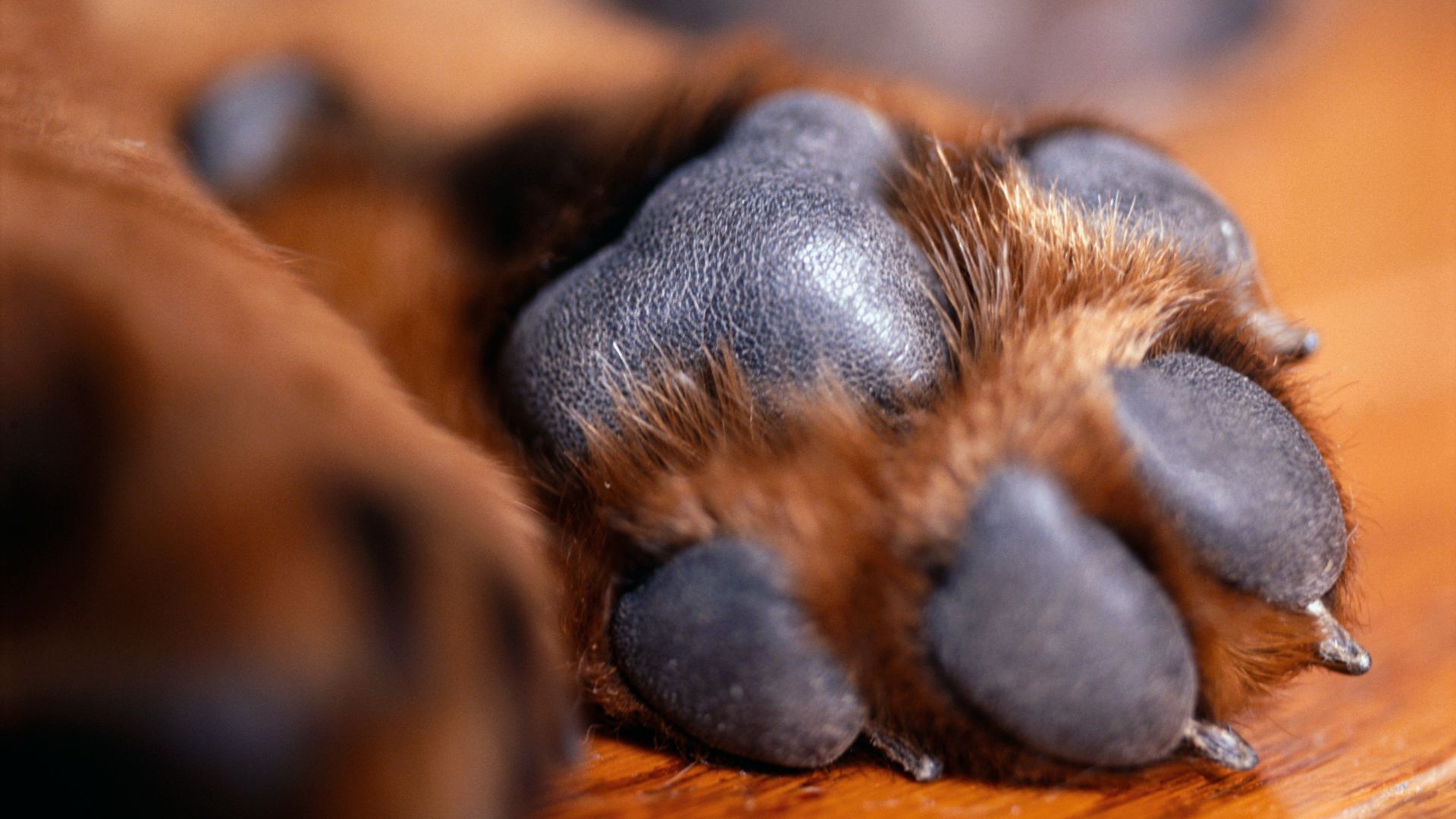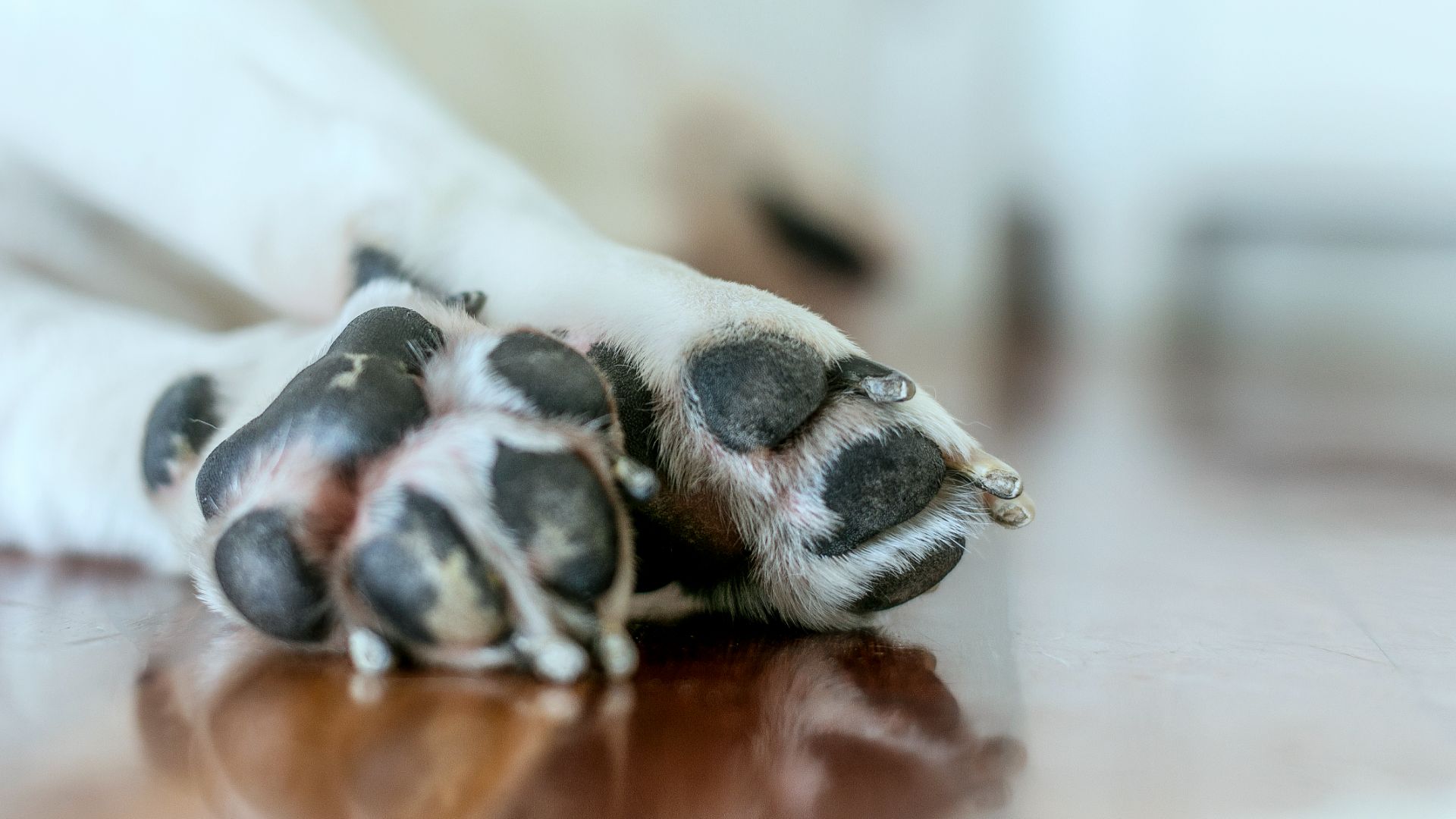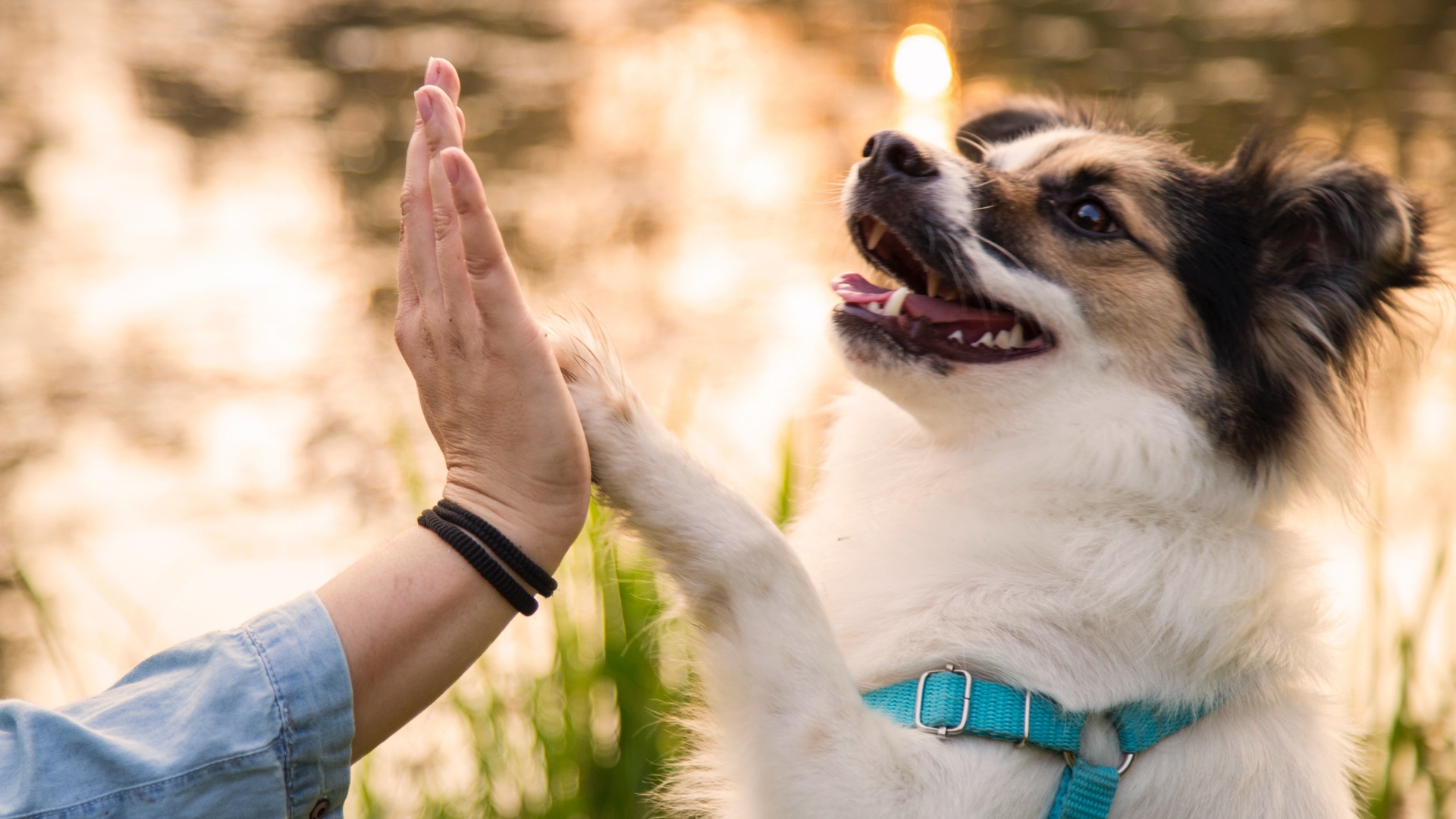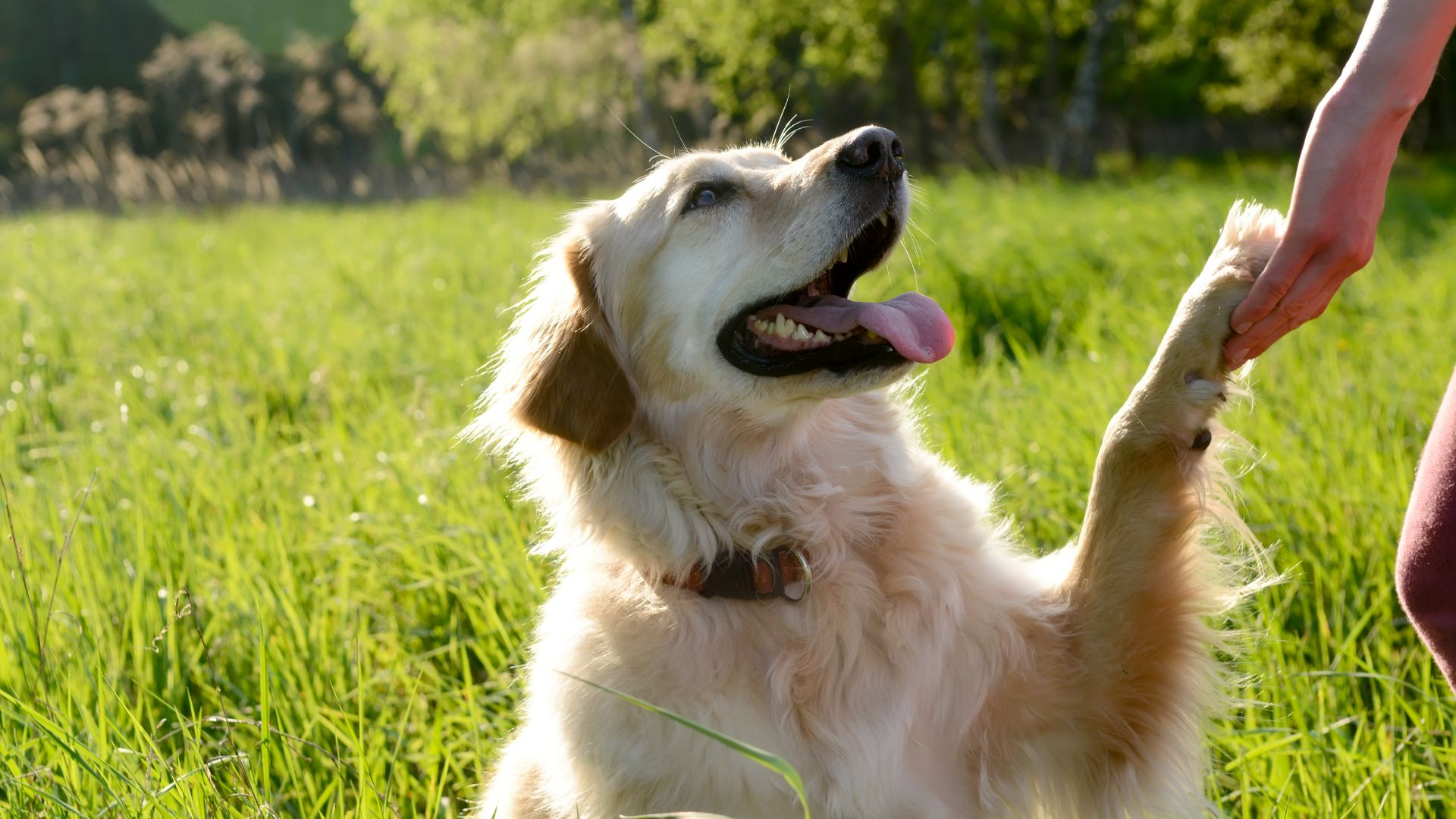
Knowing how to moisturize dog paws will come in handy if your dog has dry or rough paws. Similar to a human’s, dog paws can become dry and even crack. This causes discomfort and even potential health issues.
When it comes to moisturizing their paws, it is better to stay away from harsh chemicals and artificial products that can potentially irritate your pet’s sensitive paw pads. You may want to try natural ingredients and products such as coconut and olive oil, beeswax, and shea butter. Doing this along with trimming your dog’s nails with a pair of the best dog nail clippers will keep your dog moving comfortably.
In addition to these natural remedies, we also have some expert guidance from Dr. Joanna Woodnutt, on the best ways to keep your dog’s paws healthy.
What causes dry dog paws?

Dogs spend a lot of time walking, jumping, fetching, and just generally running around indoors and outdoors especially if they are one of the high energy dog breeds, so it’s no surprise that their paws can take a beating.
The weather can also be a factor. Dr. Joanna Woodnutt says, “Hot pavements and sand can dry out paws and cause them to become sore and even cracked.”
Dry paws can also be caused by skin allergies in dogs. Because their paws are usually bare, irritants have a greater chance of getting into the skin where they lead to redness or itching that can cause the skin to crack. Woodnutt says, "Constant licking of the paws due to allergies or arthritis can also cause them to dry out, just as over-licking of your own lips will cause them to become dry."
Other factors that contribute to dry paw
- Chemicals: If you take your dog on long walks in the winter and you live in a cold climate where snow is a regular occurrence, then one of the main ways your dog’s paws can dry out is through the salt that gets used to melt the ice on sidewalks. In the summer months, lawn fertilizers can also be an irritant.
- Rough or hot surfaces: Walks on hot sand, rough pavement, or rocky terrain can scrape your dog’s paws and cause them to dry out.
- Disease: Certain medical conditions, such as skin allergies in dogs, autoimmune disorders, and skin infections, can affect the paws, causing inflammation, itchiness, and dryness. These conditions may disrupt the normal functioning of the skin and hinder its ability to retain moisture, leading to dry and irritated paw pads.
If you notice your dog licking or chewing their paws more than usual, it could be their way of trying to relieve the itchiness that comes with having dry paw pads.
Home remedies for dry dog paws

There are plenty of natural home remedies you can use that will have your canine companion feeling comfortable again in no time. We recommend consulting your vet if you’re concerned as they can provide personalized advice based on your pet's specific needs and ensure their safety and wellbeing.
1. Shea butter
Shea butter soothes, softens, and hydrates skin. It’s well known for its moisturizing properties and best of all, it’s completely non-toxic, so even if your dog licks it all off after you’ve applied it, the worst that will happen is a mild upset stomach.
We love that Shea butter is rich in vitamins and fatty acids that penetrate deeply into the skin, creating a protective barrier that stops itching, heals cracks, and leaves paws smooth and silky. It’s a natural sun protectant too and you can use it on your dog’s coat as well to boost shine.
2. Coconut oil
Another great all-natural remedy is moisture-rich coconut oil, which, as luck would have it, is also antibacterial and antiviral, so it won’t just soothe painful paws and combat dryness, it will also minimize the risk of infection that can often set in when paws are severely cracked.
When applying coconut oil, you want to let it seep in as much as possible to get the full effects. So to avoid your dog licking it off the minute you apply it, pop their paws into a set of doggy booties to allow the coconut oil to work its magic.
3. Vitamin E oil or cream
Both vitamin E oil and cream are incredibly nourishing which probably won’t come as too much of a surprise given that vitamin E is a common ingredient in the best dog food. But as well as being great for your pup’s insides, it’s also great for their outsides.
The nutrients in vitamin E, whether in oil or cream form, can help repair cracks, heal blisters, and soften dry skin. You can add the oil to a bath or apply it to the paws in the same way you would coconut oil and as for the cream, massage into your dog’s pads and you’ll be giving your own hands a nice treatment in the process!
4. Beeswax
Made by honey bees and used to construct the interior of their hives, beeswax has all the same antibacterial, antifungal, and nourishing properties of honey, making it a great choice for your pooch’s paws.
Not only will it soften the skin, but beeswax will keep your pup’s paw pads clean, reduce the risk of infection, and prevent the growth of yeast infections. It’s also waterproof and it does a brilliant job of locking in moisture. You’ll find it included in many commercial paw creams and in the recipe for our favorite homemade cream which we’ve listed below.
5. Specialized paw cream
There are some wonderful creams on the market designed specifically for a dog's paws and one of the things we love most about these products is that they often combine many of the ingredients listed above into a powerful formula that hits dry skin hard.
Specialized paw creams also do a brilliant job of sticking to your dog’s feet, so they can walk around all day and the balm will still be creating a protective barrier that prevents further cracks while healing existing ones. Try the ever-popular Musher’s Secret (which is available on Amazon) made with a variety of waxes and enriched with vitamin E.
A vet's opinion
Dr Woodnutt acknowledges that there are various moisturizing balms you can apply to your dog’s paws to help them. "They’re generally similar, so try to find one from a well-known brand that doesn’t contain too many essential oils and other fragrances, as this can irritate their feet further," she explains, "Remember, your dog is quite likely to lick off some balm while grooming, so it’s best to use products marketed for dogs rather than a generic human cream that may not be okay to ingest."
She also notes that some natural solutions, like coconut oil, can work well, but need to be used sparingly and won’t be suitable for all dogs. As always, check with your vet if you aren’t sure!
When should you take your dog to the vet?

If left untreated, cracked paws can lead to pain, lameness, and infection, and even regular at-home paw pampering sessions may not always be enough to keep your dog's paw pads in tip-top condition.
Sometimes cracked and dry paws can be a symptom of some of the most common illnesses dogs can get, so if you notice any changes in the appearance of your dog's pads or they're licking or chewing the area more than usual, take them to the vet who'll be able to run diagnostic tests.
It's also important to consult with your vet if your pet has been exposed to extreme temperatures that have led to burns or frostbite. In these cases, proper treatment will be required to help the pad injuries heal.
If you enjoyed this feature check out Why do dogs have dewclaws and should they be removed and how to moisturize your dog’s skin.







